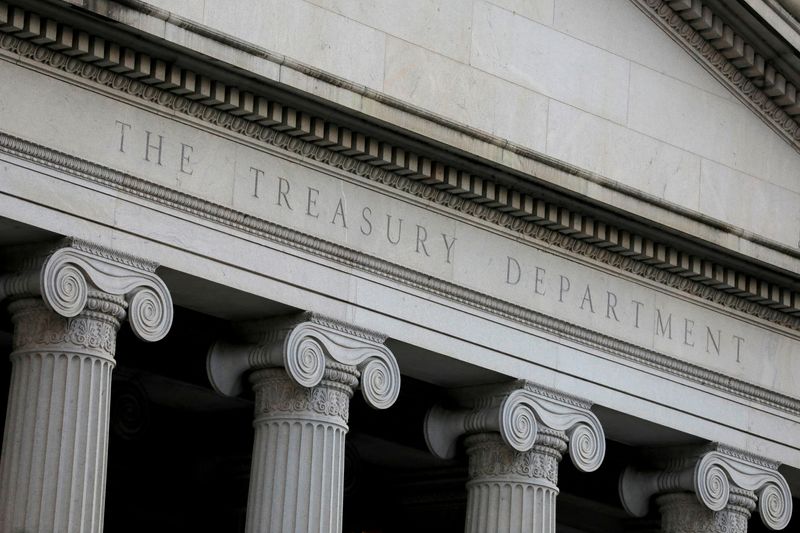U.S. seeks public input on climate law’s $270 billion in tax breaks
2022.10.05 13:32
[ad_1]

© Reuters. FILE PHOTO: The United States Department of the Treasury is seen in Washington, D.C., U.S., August 30, 2020. REUTERS/Andrew Kelly
By Timothy Gardner
WASHINGTON (Reuters) – The U.S. Treasury Department is seeking public input on how to implement $270 billion in new federal tax breaks for industries including electric vehicles, clean manufacturing, and energy efficiency, officials said on Wednesday.
The Inflation Reduction Act that was signed into law by President Joe Biden in August contained the incentives designed to help meet his administration’s goals of halving U.S. carbon emissions by 2030 and getting to net-zero emissions by 2050.
“We have to get implementation right. That means we have to listen, engage, and move quickly to translate policy into action,” John Podesta, who was chosen by Biden to lead the implementation of the energy and climate parts of the law, told reporters in a call.
Podesta said the administration will seek comments from people that do not generally engage in detailed questions about tax policy, including families, new clean energy industries, and environmental justice communities.
He said the administration is seeking to clarify questions on the credits, such as how easily consumers can get incentives if they buy used electric vehicles.
The Treasury Department and the Internal Revenue Service put out six notices on CleanEnergy.gov requesting input on topics such as tax credits for wind, solar and nuclear power, incentives for energy-efficient homes and clean vehicle credits.
Wally Adeyemo, the deputy Treasury secretary, said the department will work with the IRS to administer guardrails to ensure the benefits are delivered as Congress intended. “We’re committed to ensuring that as many eligible taxpayers as possible get credits provided by law while carefully protecting against fraud and abuse,” Adeyemo told reporters.
The new law also provided $80 billion to the IRS, much of which will be used to hire replacements for retiring employees and increase the revenue bureau’s staff, which has fallen over several decades. “The first area of focus is going to be on these climate provisions,” Adeyemo said. He did not provide a figure on how many new staff would be put on climate provisions, but said a great deal of money would be for staff and technology to work on the climate provisions.
The law’s requirements regarding domestic assembly of EVs has raised questions about which vehicles are eligible for credits. Ultimately, the way the law will be implemented is going to “require that investments be made that will not only be helpful to the electric vehicle industry here in the United States, but globally,” Adeyemo said.
[ad_2]
Source link








